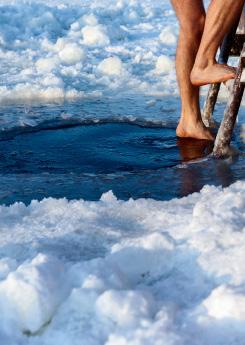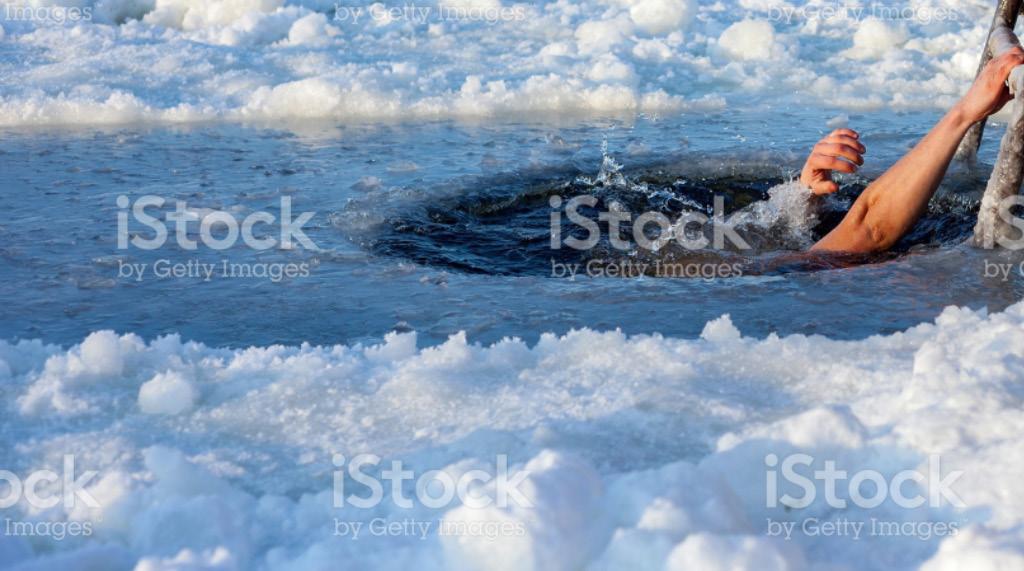
4 minute read
IS POLLUTION AGING YOUR SKIN?
from I Care Issue
by NAQI Belgium
Greet Claes
— Interview by Frank Van Laeken, sports journalist & writer —
You dress appropriately for the weather whenever you play an outdoor sport or go for a walk. You protect almost everything – except your face, which remains exposed, even though it is the most sensitive skin on your body. This has consequences, including the redness, cracks and irritations that are so common in winter. It was therefore crucial to develop protection for the face.
But it's not just the cold that we need to protect our skin against. Air pollution is also a problem. It is not only the result of industrial and biological processes: some substances become toxic due to a chemical reaction with UV rays and heat, which also causes ozone and smog. The sun is also a form of pollution. Due to the degradation of the ozone layer caused by CFKs – chemical substances which used to be used in fridges but are now forbidden – more sunlight can penetrate the atmosphere.
EXTREME CIRCUMSTANCES
The top layer of our skin fulfils an important task as it acts as a barrier. It is also the first in line of attack from air pollution. Pollutants seriously disrupt normal skin functions by releasing free radicals. A free radical is an atom that is missing one or more electrons. These unstable atoms react with other cells, disrupting them in the process. These reactions can cause a great deal of harm, sabotaging the cell nucleus and damaging DNA. Cell division will then produce inferior cells that do not function properly. Some may even go on to form tumours. Antioxidants, such as vitamin E and C, can limit damage as they attack free radicals. Premature ageing is one of the effects of pollution. The visible effects include pigmentation marks and/or wrinkles. Just consider what most people living in the countryside used to look like. They already looked old by the time they were forty. For a long time, people thought that red cheeks were the result of healthy outdoor living, but nothing could be further from the truth. This redness was simply skin irritation. You can still see this in people who spend their working lives outdoors, such as builders. They are constantly exposed to the elements, and sometimes have to work outdoors in extreme weather conditions.
We have only been looking at the effect of pollution on our skin for about the past five years. At first, people used antioxidants on their own, but they did not offer any real protection to prevent the release of free radicals. If you spend a long time in a polluted environment, you must clean your skin thoroughly in order to remove the tiny particles of pollution sticking to the skin. People think that a quick shower is enough, but this is not true. You must cleanse your skin thoroughly using water and a mild cleanser, or the effects of pollution will accumulate.
EXTREMOPHILES TO THE RESCUE
Extremophiles are micro-organisms that live in inhospitable areas such as the poles, salt lakes and deserts. They produce ‘ectoin’, a protective substance. This is a 100 percent natural ingredient that stops and prevents cell damage, allowing stressed, irritated or ageing skin to repair itself and regenerate. Ectoin® is currently produced using bacterial milks. Micro-organisms can be cultivated in a salty environment (15-20% salt), where they survive by producing ectoin. When the salt concentration drops (to 3%), they release ectoin, which is then separated and purified. It now appears that this substance has many more properties and much more potential than was previously thought. Originally it was used only as protection against extreme cold and heat. Ectoin® has a physical effect and prevents the release of free radicals. It reduces premature skin ageing that manifests mainly as premature wrinkling in European skin and in pigmentation problems in Black and Asian skin types. This extraordinary, versatile substance is used in creams and eye and nose drops. The disadvantage is that it is also an expensive raw material. It was subjected to a long test phase and cannot be produced in large amounts. It is produced in grams, not kilograms. To take optimal care of your skin, it is best to use a cream containing Ectoin® regularly. The product must be allowed to absorb into the skin for ten minutes as it contains water, which must be allowed to evaporate. Tests have shown that this cream improves circulation. It also prevents pollutants from penetrating the skin and damaging it. The release of free radicals is reduced after only five days. It therefore provides active protection. Daily skin care can no longer be seen as a superfluous luxury. It is best to apply cream to your skin, not just first thing in the morning, or when you are exercising outdoors, but also when you are walking in the street or on the beach.







